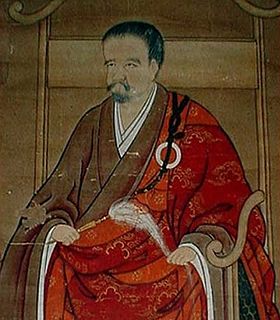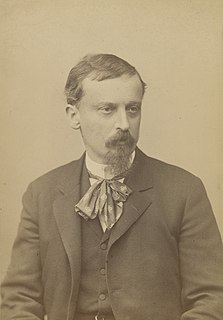A Quote by Robert Lanza
Our thoughts have an order, not of themselves, but because the mind generates the spatio-temporal relationships involved in every experience.
Quote Topics
Related Quotes
You can indeed be aware of your body, but you can also be aware of your mind - you can right now notice all the thoughts and ideas and images floating in front of the mind's inward eye. You can, in other words, experience your mind, be aware of your mind. And it's very important to experience your mind directly, cleanly, intensely, because only by bringing awareness to the mind can you begin to transcend the mind and be free of its limitations.
I know from experience that to one who thinks much and feels deeply, it often seems that he has only to put down his thoughts and feelings in order to produce something altogether out of the common; yet as soon as he sets to work he falls into a certain mannerism of style and common phraseology; his thoughts do not come spontaneously, and one might almost say that it is not the mind that directs the pen, but the pen leads the mind into common, empty artificiality.
I realize the dominating thoughts of my mind will eventually reproduce themselves in outward, physical action and gradually transform themselves into physical reality, therefore, I will concentrate my thoughts for thirty minutes daily, upon the task of thinking of the person I intend to become, thereby creating in my mind a clear mental picture of that person.
Devotion {to the spiritual master} becomes the purest, quickest, and simplest way to realize the nature of our mind and all things. As we progress in it, the process reveals itself as wonderfully interdependent: We, from our side, try continually to generate devotion; the devotion we arouse itself generates glimpses of the nature of mind, and these glimpses only enhance and deepen our devotion to the master who is inspiring us. So in the end devotion springs out of wisdom: devotion and the living experience of the nature of mind becomes inseparable, and inspire one another.
I agree that science is the best way of understanding the natural world, and therefore that we have reason to believe what the best science tells us about the objects in that world and the relations between them. But this does not mean that the natural world is the only thing we can have true beliefs about. The status of material objects as things that are "real" is a matter of their having physical properties, such as weight, solidity, and spatio-temporal location. In order to be real, such things need not have, in addition to these properties, some further kind of metaphysical existence.
The really important facts were that spatial relationships had ceased to matter very much and that my mind was perceiving the world in terms of other than spatial categories. At ordinary times the eye concerns itself with such problems as where? — how far? — how situated in relation to what? In the mescaline experience the implied questions to which the eye responds are of another order. Place and distance cease to be of much interest. The mind does its perceiving in terms of intensity of existence, profundity of significance, relationships within a pattern.
It is in our own mind and not in exterior objects that we perceive most things; fools know scarcely anything because they are empty, and their heart is narrow; but great souls find in themselves a number of exterior things; they have no need to read or travel or to listen or to work to discover the highest truths; they have only to delve into themselves and search, if we may say so, their own thoughts.




































